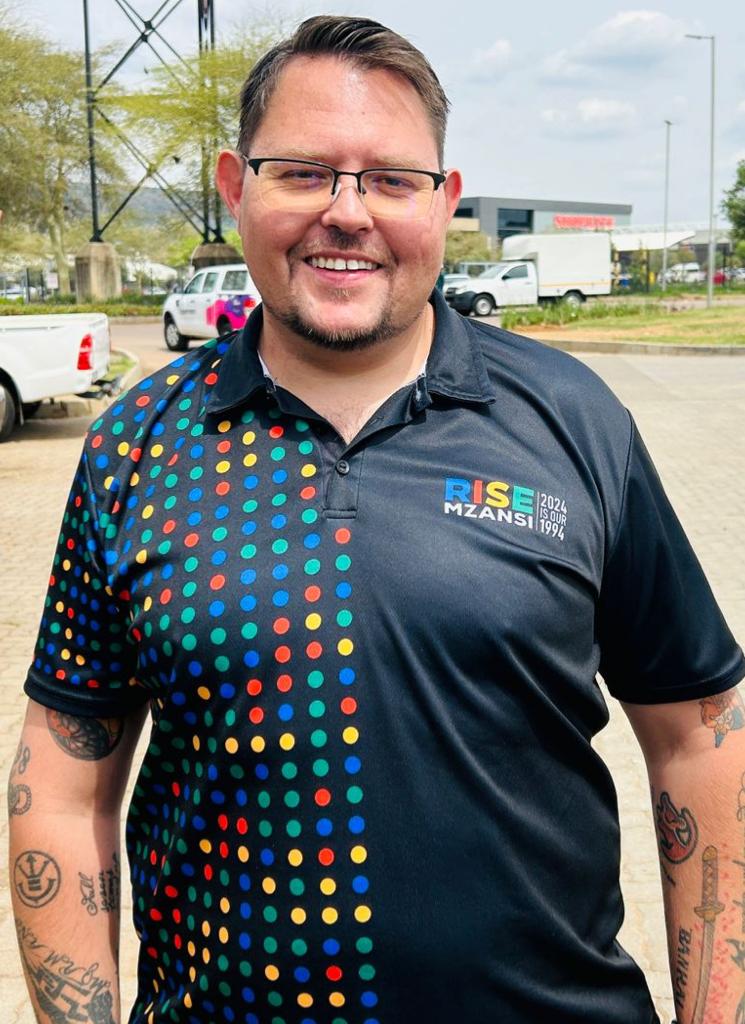
One on one with Tshwane leaders
This week we interview Michael Shackleton, Metro Lead of Rise Mzansi in Tshwane.
1.You are a former member of the DA. Why did you join the selfsame DA in the first place?
I joined the DA when I was still in university as I genuinely believed at the time that it was the best vehicle to hold government to account, to unite South Africans, ultimately deliver services and improve people’s lives.
2.Why did you quit the DA?
I do feel, as well as many others that have since left the DA, that it no longer seeks to appeal to people of all races in South Africa.
It is clear to me that the DA’s national leadership and metro mayors is made up of one race only, whereas under former national leadership this was far from the case. The DA has now regressed in its thinking, its approach and its support. It is also noteworthy that they have come out guns blazing against affirmative action – in spite of the country’s Apartheid past. This shows that they have lost touch.
3.Why did you join Rise Mzansi and not any other party?
Rise Mzansi broadly reflects the actual demographics of South Africa and empathises with and understands the actual challenges and lived experiences faced by ordinary South Africans on a daily basis. It is the party with the right solutions and the right people to address the many crises that South Africa faces. The Party’s social democratic stance means that we believe that the government must intervene in the economy and the country to better people’s lives – for example, to address the lack of running water, electricity and refuse removal in multiple communities – which no party has addressed to date.
4.What is your take on the idea of constituency-based Parliamentary representation as opposed to party political representation?
RISE Mzansi proposes a mixed open party-list, proportional representation, and constituency-based electoral system to establish an electoral system that has a direct link between citizens and their MPs. People cannot make an informed voting choice or hold MPs accountable if they don’t know who will represent their constituency. 75% of MPs must be elected by constituencies, with right of recall if such MPs neglect their duties or do not consult constituencies on an ongoing basis.
6.What is your take on the tender system of procuring services by the government? Must it be abolished as it brings about corruption?
We see public sector procurement as an economic lever that must balance value for money and advancing economic inclusion and justice. We will stop the corrupt abuse of BEE by politically connected individuals and businesses that overcharge taxpayers to pay kickbacks and enrich themselves. Instead, we will use public procurement to advance entrepreneurship and innovation, especially by economically marginalised groups.
We will create a simplified, transparent public procurement system that uses digital technology, including blockchain, to capture, track and audit all major procurement. Transgressors will be punished swiftly. Political office-bearers will play no role in procurement except oversight to ensure compliance with government policy.
Some people are of the opinion that the constitution of our country must be changed. What is your opinion in this regard?
The Constitution will need to be changed to give rise to our governance priorities, which include that we:
Commit to comprehensive electoral reforms that give power back to people and communities with the ability to recall public representatives who do not perform;
Commit to strengthening Parliament as an anchor of our democracy and a representation of people’s voices through capable representatives;
Insist that the national cabinet should be reduced to achieve a government that is responsive, accountable, innovative and transparent;
Commit to review the status of provinces, and reverse the decline of our municipalities so they deliver services and bring government closer to people.
7. What changes would Rise Mzansi make regarding the education system if voted into power?
We believe bilingual education should be mandatory, with all learners required to learn at least one Africa.language. Civic education should also be a mandatory subject, for students to learn about their institutional rights, civic responsibilities and how our democracy is organised. Aspects of the curriculum should be Africa-centred.
8. What is your party’s view on coalition governments seeking that such arrangements have failed at municipal level?
Coalitions must be built on shared principles and cannot be based purely upon being against other parties merely for the sake of it and also for acquiring power.
9. How is your party going to deal with the issue of illegal foreigners?
Rise Mzansi believes we have a problem with management of immigration, not with immigrants generally. Rise Mzansi therefore takes a humane, balanced approach to immigration. We also aim to better manage it, not stop it.
10. Does Rise Mzansi have any plans regarding job creation? ANSWER: To achieve this goal, we need our economy to double in size in 12 years, which can be achieved with annual minimum GP growth rate of 6% per annum.
11. Your party’s stance on land redistribution please?
New city and rural planning will provide for a mix of government housing and serviced stands for those who can afford to build. We will also provide for ” green zones” that include stock and crop farming for own and commercial food production. Every stand, be it rural or urban, will have piped water to enable sanitation and food production. Cities shall be reshaped for affordable housing and shorter commiting and better access to employment. We will also fix and expand transport infrastructure.
12. What unique features does Rise Mzansi have which may compel voters to elect it into power?
We stand for a participatory democracy. The past 29 years have demonstrated that South Africans cannot leave politics to politicians or political parties, no matter how noble they ( politicians) may seem.